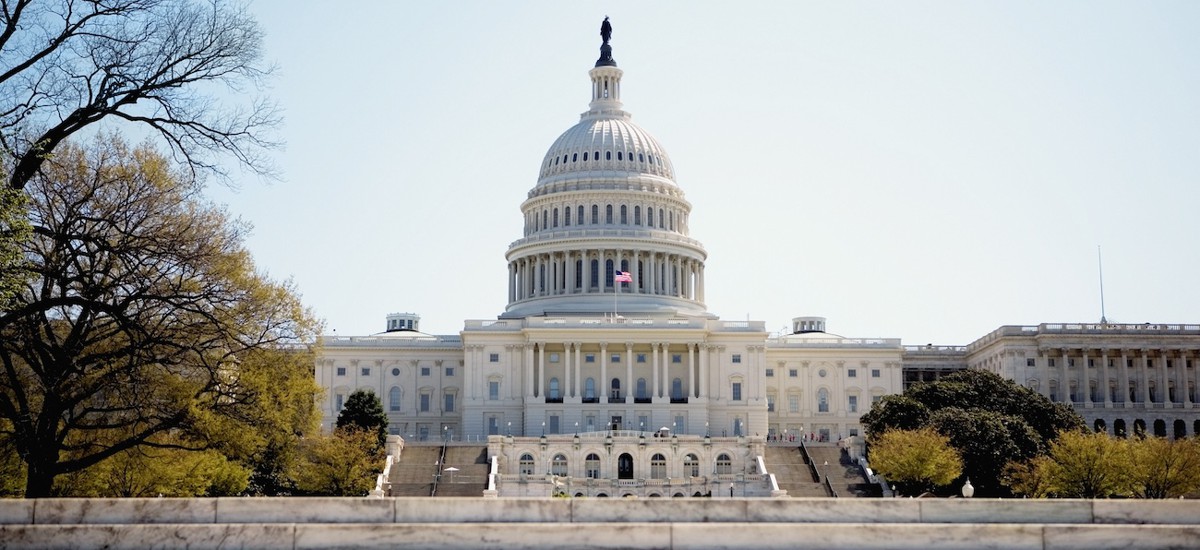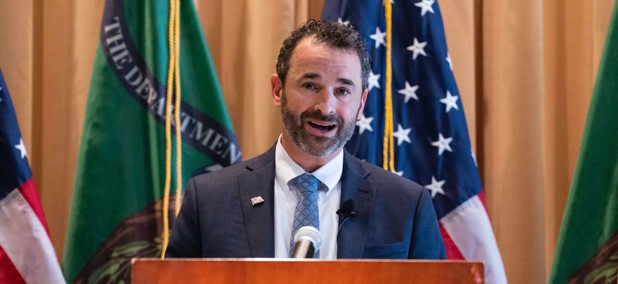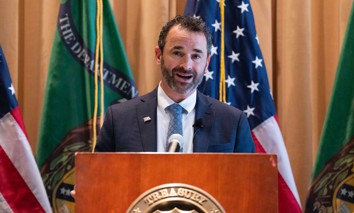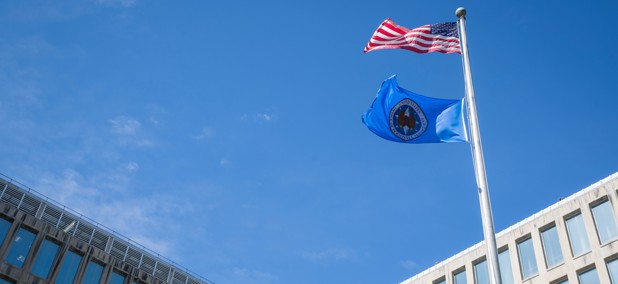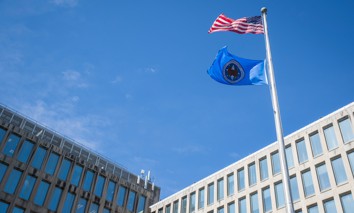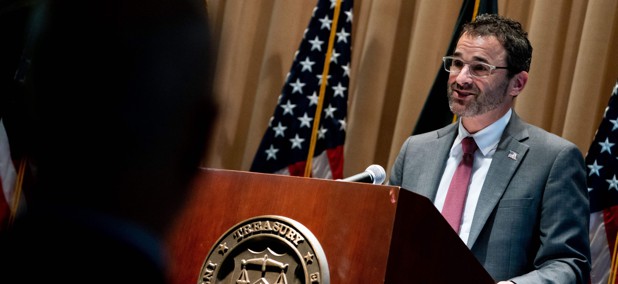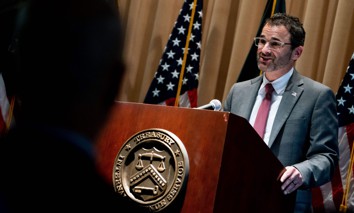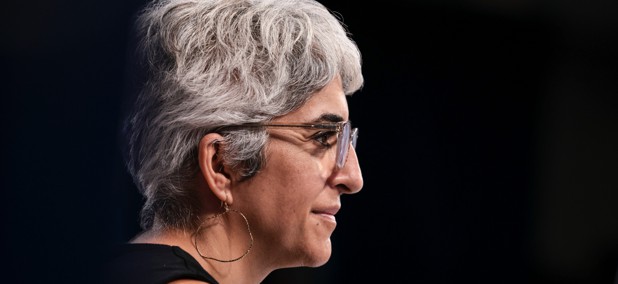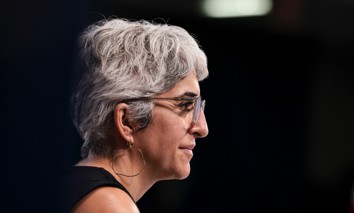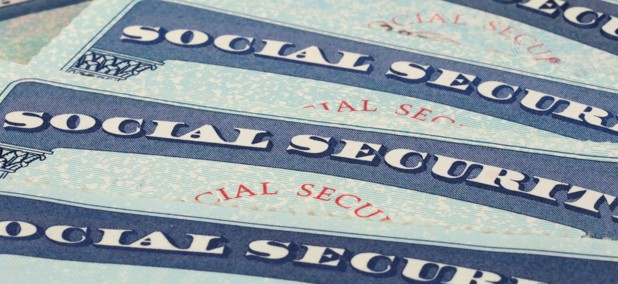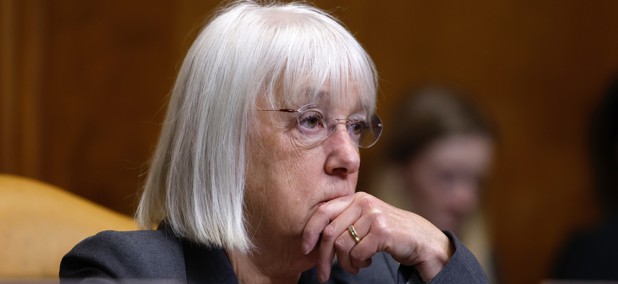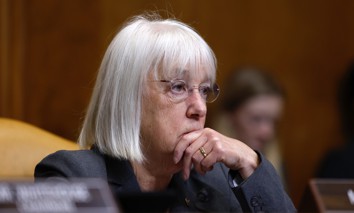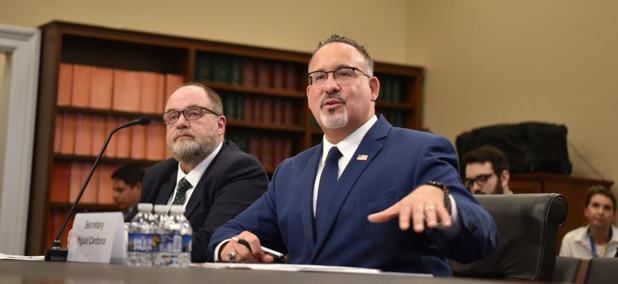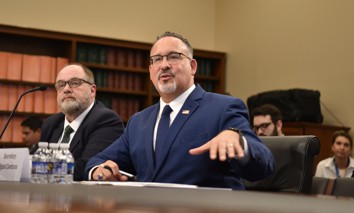Management
IRS chief pleads for another funding boost to skeptical lawmakers
Commissioner says recent successful tax season is unsustainable without more cash to sustain resources.
Management
Federal documents don’t provide enough checkboxes for all AAPI ethnicities. That may be about to change
AAPI researchers are celebrating the federal government’s new standards for collecting more detailed race and ethnicity data, in which respondents are able to report their country of origin.
Defense
If a national security agency head becomes medically incapacitated, a House-passed bill would require notifications
The measure is a legislative response to Defense Secretary Lloyd Austin not telling the White House that he was hospitalized earlier this year.
Tech
With only three weeks to go, lawmakers weigh ways to save federal internet subsidy
Congress is exploring several options to fund it. All face long odds of success despite widespread and bipartisan support for the Affordable Connectivity Program.
Sponsor Content
Anticipating Tomorrow's Care: The Limitless Potential of Predictive Health
Predictive health harnesses the power of AI and algorithms to sift through and analyze large quantities of health data in various structured and unstructured formats.
Tech
Transportation Department seeks AI solutions for transit infrastructure
The agency is looking for ways AI can improve pedestrian safety, air traffic control, road traffic management and more.
Oversight
GSA failing to monitor building maintenance contracts, watchdog says
A new report from the GSA inspector general found that contractors did not complete a majority of maintenance work orders sampled in six federal buildings.
Management
Shriver assumes acting OPM director role
The federal government’s dedicated HR agency will be led by its long time deputy director, following Director Kiran Ahuja’s resignation.
Sponsor Content
Open source management and policy compliance whitepaper
The U.S. government has announced a new requirement that will mandate that its software suppliers self-attest that they follow the secure software development practices.
Tech
HUD warns on AI-fueled housing discrimination
The Department of Housing and Urban Development confirmed characteristics like race and income, are protected from AI algorithmic discrimination.
FEATURED INSIGHTS
News
Finalists for the 2024 government service ‘Oscars’ unveiled
The Sammies recognize excellence and innovation in the career federal service and its 2024 finalists include outstanding public servants from the State Department, NIST, the EPA's Maui Wildfires Emergency Response Team and others.
Tech
States get streamlined access to Treasury’s Do Not Pay system for unemployment
The move comes as federal agencies have worked with states to combat the rise in jobless aid fraud following the pandemic.
Workforce
AFGE wins two more union elections for federal workers stationed in Europe
Two separate groups of Defense Department employees stationed in Germany voted to join the nation’s largest federal employee union this week.
TSP TICKER
FUND
G
F
C
S
I
MAY 06 CLOSE
$18.2301
$18.8618
$81.1294
$80.3590
$42.4196
DAILY CHANGE
0.0072
0.0190
0.8313
1.1476
0.2998
THIS MONTH (%)
0.08
1.36
2.89
4.22
2.90
FUND
L 2060
L 2050
L 2040
L 2030
L INCOME
MAY 06 CLOSE
$16.2004
$32.4208
$53.9554
$47.3913
$25.5987
DAILY CHANGE
0.1555
0.2613
0.3848
0.2867
0.0730
THIS MONTH (%)
3.05
2.62
2.32
1.95
0.92
FUND
MAY 06
CLOSE
CLOSE
DAILY
CHANGE
CHANGE
THIS
MONTH
MONTH
G
$18.2301
0.0072
0.08
F
$18.8618
0.0190
1.36
C
$81.1294
0.8313
2.89
S
$80.3590
1.1476
4.22
I
$42.4196
0.2998
2.90
L 2050
$32.4208
0.2613
2.62
L 2040
$53.9554
0.3848
2.32
L 2030
$47.3913
0.2867
1.95
L 2020
$None
None
L INCOME
$25.5987
0.0730
0.92
Management
New bill would place restrictions on DeJoy’s USPS reform efforts
USPS is stripping rural America of reliable service without "legitimate justification," senator says.
Workforce
IRS says layoffs possibly by 2026 without sustained funding boost
The tax agency plans to grow its workforce another 14% in the coming years, but such growth could prove unsustainable.
Management
OPM updates list of skills needed for federal HR jobs
Officials hope that the changes will better equip agencies to tackle skills gaps and help finally address the more than two-decade-long struggle to remove human capital management from the government’s High Risk List.
Tech
Federal broadband subsidy cut amid fears over its future
The Affordable Connectivity Program will pay some households just $14 in May, down from $30. Unless Congress acts on a $7 billion extension bill, it will run out of money at the end of the month, plunging some families, supporters warn, into “digital darkness.”
Pay & Benefits
Essential things to know about your Social Security benefit: Part 1
It is important to keep up with Social Security changes that can have an impact on your current and future benefits.
Management
Democrats lay down marker for agency spending in FY25 funding bills
The party is looking to avoid the cuts that many agencies are enduring in the current fiscal year.
Tech
Education secretary pledges troubled online student aid tool will be ready for next fall
The online Free Application for Federal Student Aid tool had a rocky release, with bad data and uptime problems, but the Department of Education is looking for improvements next year.
Management
USPS regulator weighs intervening on DeJoy reforms
The American people want to know "how to stop this decline" in mail service and "how to keep it from spreading," watchdog says.
Oversight
Biden to replace embattled acting Commerce IG
Jill Baisinger, current chief of staff in the Interior Department’s Office of the Inspector General, will take over for Roderick Anderson at the end of May.
Updated
News
Group says CBP official drank while carrying firearm, retaliated against whistleblower
The Government Accountability Project sent a letter Wednesday to multiple congressional committees, the Homeland Security Department and others alleging a senior official consumed alcohol while in possession of an agency-issued firearm.
Pay & Benefits
Most TSP funds took a tumble in April
After two months of sustained gains, only one portfolio in the federal government’s 401(k)-style retirement savings program finished last month in the black.
Pay & Benefits
